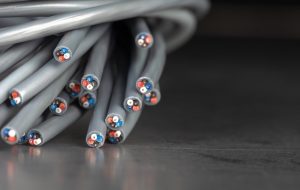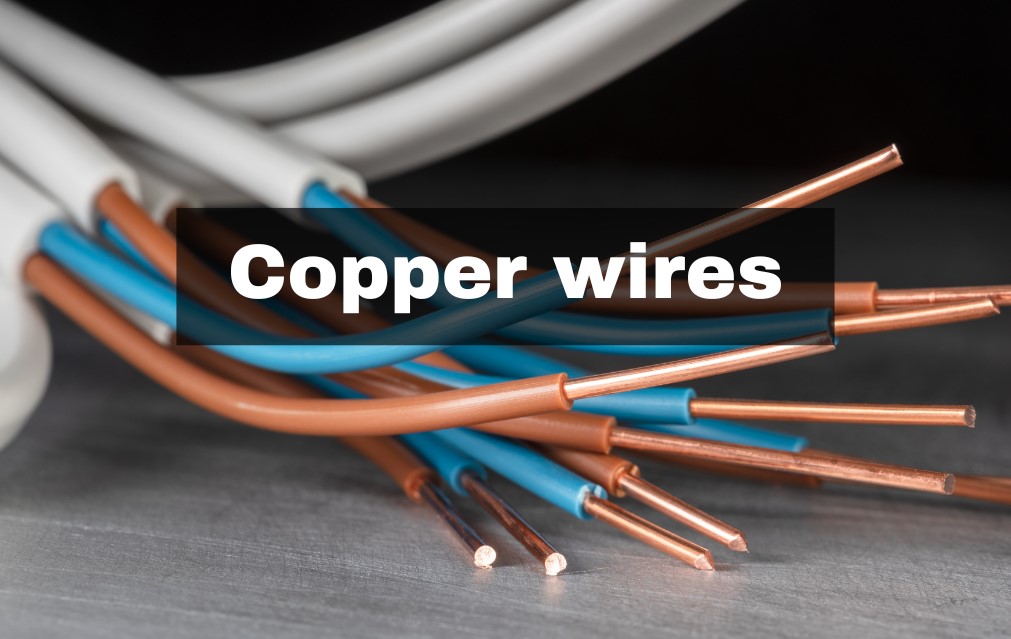Among all materials used for electrical wiring applications, copper represents a dominant choice. The combination of outstanding conductive properties with strong durability along with flexibility makes copper wire an important industrial component. The extensive use of copper in industry as well as its superiority over other materials requires an explanation.
This article explains every detail about copper wires and their multiple uses.
Table of Contents
ToggleWhat Are Copper Wires?
Thin strands composed of copper metal function as electricity conductors under the name copper wires. The electrical applications benefit greatly from copper because it possesses superior electrical transmission capabilities. Copper serves electric flows with minimal opposition because of its natural properties, which ensure electrical systems operate efficiently and reliably.
Why is copper the preferred choice for wiring?
The selection of copper wires as material preference depends on vital factors. The main characteristic that makes copper perfect for conducting electricity is its electrical conductivity. Electricity transport stands best with copper than any other commonly used material.
The reliable and enduring properties of copper wires emerge from their ductility combined with their electrical conductance properties, which resist corrosion under all conditions, including damp and rough settings. Installation of copper wires should be done underground or through walls because this metal material functions reliably for such purposes.
Copper Wire Uses in Everyday Life
| Copper Wire Use | Application Area |
| Powering outlets, light switches, and appliances | Residential Wiring |
| Powering machines and control systems | Industrial Settings |
| Telephone lines | Telecommunications |
What makes copper wire so efficient?
Copper wire’s excellent conductivity comes from its atomic structure, which allows free electrons to move easily, enabling smooth electric current flow. This makes copper superior to metals like aluminum, as it produces less resistance and enhances transmission performance. Modern electrical systems use copper wires to minimize energy loss and ensure efficient power distribution, whether in homes or large industrial operations.
The Role of Copper Scrap in Recycling
- Essential
- Recycling
- Refinement
- Sustainability
Types of Copper Wires and Their Applications
Different types of wires exist, so you can select the proper wire that matches your requirements.
Solid Copper Wire
Solid copper wire functions with one continuous copper strand. Electricians use residential wiring systems to incorporate this wire type due to its application in both circuits and electrical outlet installation. The connection becomes stable and dependable for achieving extensive wire lengths.
Stranded Copper Wire
The construction of stranded copper wire differs from solid wire by using twisted multiple small strands of copper. The flexible nature of stranded copper wire combines with its advantageous properties to make it perfect for situations requiring wire movement, like automotive or portable electronic systems.
Copper Wires in Electrical Systems

- Essential for power systems
- Used in homes and industries
- Ensures smooth electricity flow
- Highly flexible and strong
- Preferred for electrical setups
Conclusion
Copper wires have maintained their position as the leading option for electrical wiring since the beginning of the twentieth century. Their high conductivity, together with durability and versatility, makes copper wires suitable for diverse applications throughout complex industrial systems and home electricity systems. Therefore, copper continues to be an indispensable resource in contemporary world applications.
FAQs
Why is copper used in electrical wiring instead of other metals?
Being an excellent electrical conductor, copper leads to minimal energy loss. Copper works well as a wiring material since it has resistance to corrosion and remains flexible along with durability.
Can copper wire be recycled?
The recycling value of copper wire is very high. Recycled copper possesses identical efficiency levels to new copper and also helps save natural resources while decreasing environmental impacts.
What are some common uses for copper wires?
Homes use copper wires alongside industrial machines and telecommunications equipment, and manufactured products as well as solar energy systems depend on them.
What is the difference between solid and stranded copper wire?
A solid copper wire maintains its rigidity by using one single continuous copper strand, yet stranded copper wire obtains its better flexibility by using multiple twisted copper strands.
Is scrap copper valuable?
The value of discarded copper items remains high because recycling this material results in fresh copper products. The process of recycling waste copper both lowers the amount of unused materials and protects our natural resources.

